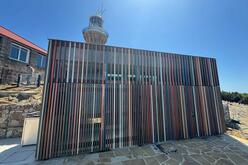More than 12,000 additional tonnes of solar panels and batteries will be diverted from landfill every year thanks to 5 projects receiving a total of $7.4 million in NSW Government funding support.

The funding includes support for the first three solar panels and battery recycling facilities in New South Wales, which are being built in Bankstown, Fairfield and Albury.
Minister for Environment James Griffin said the Circular Solar grants are driving a circular economy for solar panels and large energy storage system batteries.
“This funding is driving a circular economy by helping New South Wales develop new ways of dealing with solar panel and battery storage waste, which is increasingly important as currently installed systems reach the end of their life,” Mr Griffin said.
“While the amount of solar panel and battery storage system waste is low at the moment, we want to make sure New South Wales is ahead of the curve with innovative ways of managing this emerging waste stream.
“With this funding, we’re supporting the construction of the first 3 recycling facilities for solar panels or batteries in New South Wales, and 2 other projects that will divert more decommissioned solar panels from landfill so they can be reused.”
Circular Solar round 2 funding recipients:
- PV Industries is receiving $2.3 million to scale-up its solar panel recycling technology and build a new solar panel and battery recycling facility in the Bankstown area, which will process up to 8,000 tonnes per year.
- Tes-Amm Australia is receiving $1.9 million to construct a new lithium-ion battery recycling facility in the Fairfield area, processing up to 800 tonnes per year of lithium-ion batteries from solar panel systems.
- Scipher Technologies is receiving $1.7 million to construct a solar panel recycling facility in the Albury area, which aims to process up to 2,000 tonnes per annum, with the recovered materials going back into local markets.
- Blue Tribe is receiving $400,000 to investigate a process to divert serviceable decommissioned solar panels from landfill for reuse in community solar gardens, which has the potential to divert 10,000 tonnes per year of reusable end-of-life solar panels by 2030.
- The University of New South Wales is receiving $1million to complete research and development activities for a prototype recycling technology that can recover valuable metals, glass, and silicon from solar panels.
A scoping study commissioned by the Department of Planning and Environment forecast that the amount of solar panels and batteries at their end-of-life could reach more than 40,000 tonnes per year by 2035.







